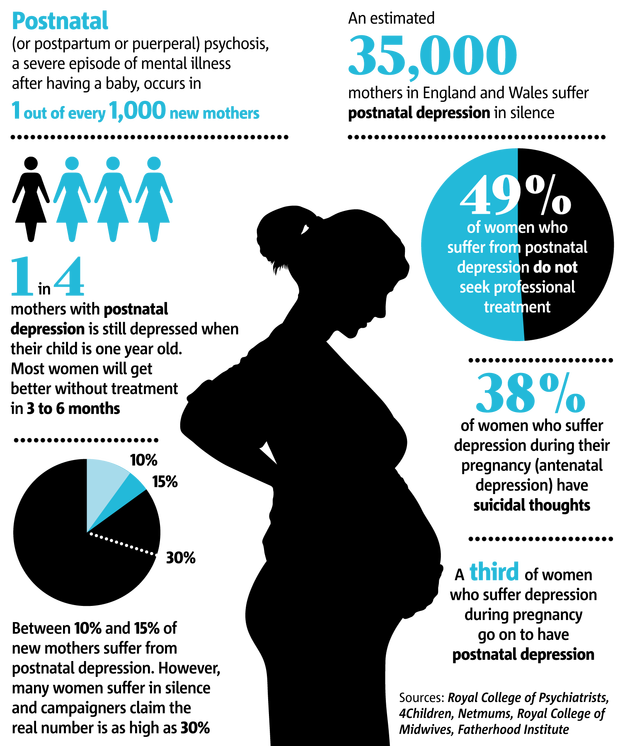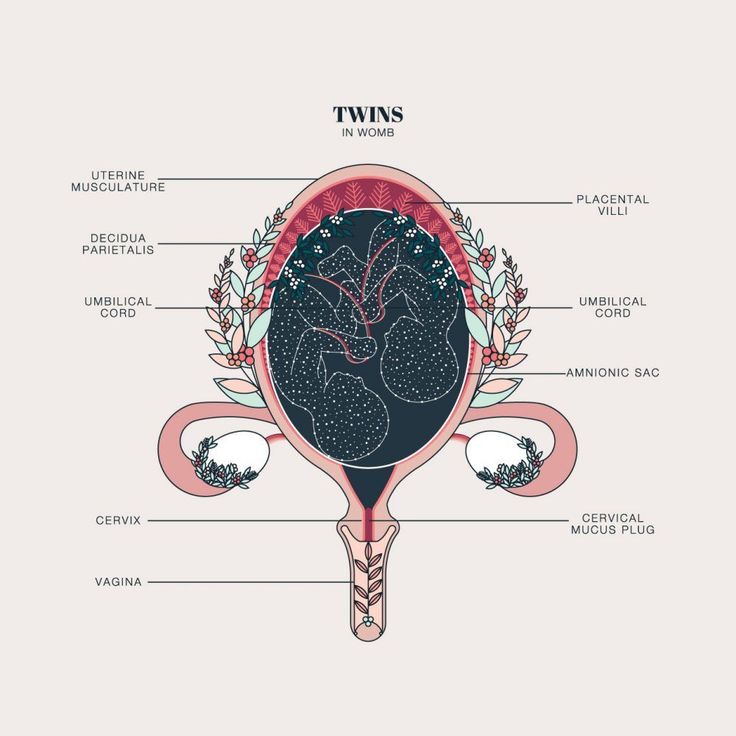Common colds during pregnancy
Pregnant with a cold: Treatments, risks, and prevention
Catching a cold during pregnancy will not harm the fetus, but it can be uncomfortable for the person who is pregnant, and they may also worry about which treatments and medications they can use safely.
Colds are very common. The Centers for Disease Control and Prevention (CDC) estimate that adults have an average of 2–3 colds per year.
The chances of catching a cold while pregnant are higher because the immune system is less robust during pregnancy.
According to March of Dimes, catching a cold will not harm a developing fetus, and the pregnant person will typically recover in a week or so.
People are also more likely to catch potentially more serious infections, such as the flu, during pregnancy. This means that taking steps to prevent illness is important during pregnancy.
This article looks at what to consider when treating the symptoms of a cold during pregnancy, how to prevent a cold, and when to see a doctor.
Treating a cold usually means using over-the-counter (OTC) medications. However, many pregnant people worry about whether drugs will affect the fetus.
The Food and Drug Administration (FDA) recommend always talking to a doctor before using any pain medication during pregnancy.
Most OTC drugs contain the same few ingredients to treat cold symptoms. The following sections look at the safety of different types of cold treatments.
Pain relievers
Pain relievers are a group of drugs that reduce pain. Some types also reduce inflammation and fever.
OTC pain medications include:
- acetaminophen, under brand names such as Tylenol
- nonsteroidal anti-inflammatory drugs (NSAIDs), including naproxen, ibuprofen, and aspirin
Research suggests that acetaminophen is the safest pain relief drug to use during pregnancy, with recommendations to use the lowest effective dosage for the shortest time.
An article published in American Family Physician (AFP) reports acetaminophen to be safe to use during all trimesters on its own, but not necessarily in combination with other cold remedies that contain a range of other ingredients.
However, the article states that NSAIDs may carry risks. They recommend avoiding aspirin during pregnancy except for specific uses and avoiding naproxen and ibuprofen during the third trimester.
Prescription drugs tend to be stronger than OTC drugs and are more likely to carry risks.
The FDA note that prescription NSAIDs may increase the risk of pregnancy loss during the first half of pregnancy and that prescription opioids may increase the risk of birth abnormalities when taken in the first trimester.
Severe and persistent pain can lead to serious effects, such as high blood pressure, depression, and anxiety. It is important to weigh the benefits of taking pain relief drugs during pregnancy against the potential risks.
Always talk to a healthcare professional before deciding to take any medication that relieves pain during pregnancy.
Cough suppressants
OTC cough suppressants often contain medications such as dextromethorphan and guaifenesin.
According to the AFP, these medications appear to be safe during pregnancy in the correct doses. However, it may be best to consider drug-free options as the first line of defense.
For example, before using a cough suppressant medication, people can try using herbal or mentholated throat lozenges to ease a cough or sore throat.
Read more about natural cough remedies here.
Antihistamines
Antihistamines are a popular allergy medication that may relieve a runny nose, watery eyes, or sneezing caused by a cold.
Up to 15% of people use antihistamines during pregnancy, and experts generally consider them safe.
According to the American College of Allergy, Asthma, and Immunology (ACCAI), people can use the following during pregnancy:
- diphenhydramine (Benadryl)
- chlorpheniramine (ChlorTrimeton)
- loratadine (Claritin)
- cetirizine (Zyrtec)
Most OTC antihistamines are safe to take in pregnancy as long as a doctor approves them.
Read about some natural antihistamines here.
Decongestants
According to one source, it is safe to take decongestants, such as pseudoephedrine, when directed by a healthcare provider.
However, research has not yet established that decongestants are safe during pregnancy. Some studies suggest that some decongestants, including pseudoephedrine and phenylephrine, may increase the risk of birth abnormalities.
The overall evidence suggests that people use decongestants sparingly during pregnancy, especially during the first trimester.
Saline nasal sprays and nasal strips are safe alternatives for nasal congestion.
Natural remedies
Resting while sick is important to give the body time to focus on recovery. Lying down with the head elevated may help with breathing and stuffiness.
Drinking plenty of water can help people recover from a cold. Juices and smoothies can also provide nutritional intake when people have no appetite.
Many people also use room humidifiers to help clear a stuffy nose and promote a productive cough.
Applying warm compresses to the head, sinuses, and shoulders may help reduce pain and congestion.
Read more about natural remedies for a cold or flu here.
People are also more likely to catch colds and the flu during pregnancy, so it is important to take steps to prevent illness.
To prevent the common cold, the CDC recommend:
- washing the hands often with soap and water for 20 seconds, or using an alcohol-based hand sanitizer when this is not possible
- avoiding touching the face with unwashed hands because viruses that cause colds can enter the body through the eyes, nose, and mouth
- staying away from people who are sick as close contact with others can spread cold viruses.
Light to moderate pregnancy-safe exercises, such as swimming and indoor cycling, can boost the immune system and increase metabolism.
Healthful eating is another important factor in preventing a cold. Focusing on eating a variety of fresh foods can help ensure the body gets the nutrients it needs.
Taking a prenatal vitamin that includes zinc and vitamin C may also help support the immune system and prevent colds.
Many people experience pregnancy rhinitis, which has symptoms similar to a cold.
This occurs due to inflammation and swelling of the mucous membranes in the nose, extra fluid in the body, and changing hormone levels.
Pregnancy rhinitis occurs in around 20% of people. Some people may find it difficult to distinguish rhinitis from a common cold.
The symptoms of pregnancy rhinitis include:
- a runny nose
- congestion
- sneezing
- difficulty breathing
- snoring
A cold during pregnancy is the same as any other cold. The common cold is not likely to not harm the mother or fetus.
People may catch a cold or flu from being around others who are sick. The CDC provide guidance on how to avoid catching the flu.
It is important to know the difference between a cold and the flu. The two have similar symptoms, but the flu tends to be more severe, and a person will usually have a fever.
Read more about pregnancy and the flu here.
If someone experiences a fever during pregnancy, they should contact their doctor to see what steps they can take to reduce the fever to safe levels as quickly as possible.
Having a cold during pregnancy will not usually affect the fetus. Colds are mild illnesses that a person’s immune system can handle relatively easily.
Having a cold during pregnancy will not usually affect the fetus. Colds are mild illnesses that a person’s immune system can handle relatively easily.
However, the person’s temperature and infections can affect the fetus. If a person is experiencing a fever or other signs of infection, it is essential to speak with a doctor immediately to find the best way to reduce these symptoms.
When a person is pregnant, their body deals with a cold in much the same way as it does at any other time. The symptoms are temporary, and in most cases, the cold will be gone in 7–10 days.
If someone experiences the following symptoms during pregnancy, they should talk to a doctor right away:
- a fever of over 100.
 4° F
4° F - severe or unusual symptoms
- symptoms that last more than 10 days
- symptoms of the flu
- violent coughing that makes it hard to breathe
Colds are very common during pregnancy, and they are unlikely to harm the pregnant person or fetus.
While there are some uncertainties over the safety of OTC cold remedies during pregnancy, most people can relieve their symptoms using gentle home remedies. Most people will feel better in around a week.
How to Treat a Cold During Pregnancy
Having a cold is never fun—especially not when you’re expecting. If you’re feeling under the weather, you might be wondering how to tackle it. Is cold medicine safe for pregnancy? Will a cold during pregnancy affect baby? We asked two experts for answers. Below, get a rundown of everything you need to know about having a cold while pregnant, from symptoms to look for to quick tips on how to find relief.
In this article:
What causes a cold during pregnancy?
Cold symptoms during pregnancy
How to treat a cold while pregnant
When to call the doctor about a cold during pregnancy
Preventing colds while pregnant
What Causes a Cold During Pregnancy?
The reasons someone catches a cold while pregnant are the same as they were before baby. The common cold is an infection of the upper respiratory tract, and there are over 200 viruses that cause it, including the very common Rhinovirus, says Cynthia Flynn, MD, a Florida-based ob-gyn with JustAnswer. Plus, cold viruses are easily spread through direct contact and the air (via sneezing and coughing), so they can be transmitted through something you touch or even by being near someone else with a cold, Flynn adds.
The common cold is an infection of the upper respiratory tract, and there are over 200 viruses that cause it, including the very common Rhinovirus, says Cynthia Flynn, MD, a Florida-based ob-gyn with JustAnswer. Plus, cold viruses are easily spread through direct contact and the air (via sneezing and coughing), so they can be transmitted through something you touch or even by being near someone else with a cold, Flynn adds.
Pregnant women are also more prone to colds because of their changed immune system, which works extra hard to protect both mom and baby. “The immune system during pregnancy is very complex and changes to [give] immune responses to the fetus,” she explains. “While the specific changes are very complex, the end result is that minor infections may be more common.” They can last longer too—anywhere from five to 10 days, Flynn says. Most women will experience two to three colds during their pregnancy, but, like so many other aspects of pregnancy, this will vary from person to person. “Some experience no colds, and some many more. This depends on the exposure that the woman has in her day-to-day life,” Flynn says.
“Some experience no colds, and some many more. This depends on the exposure that the woman has in her day-to-day life,” Flynn says.
Does a cold during pregnancy affect baby?
If you’re wondering whether your cold will negatively affect baby, the good news is it won’t. In fact, if you catch a cold during the third trimester, you might even pass on some protective antibodies to baby, Flynn notes. Rest assured that, while you may feel uncomfortable, baby’s doing just fine.
Cold Symptoms During Pregnancy
You probably know the symptoms of a cold by heart: nasal congestion, a cough, sore throat and low-grade fever. While these symptoms remain the same during pregnancy, they can be hard to distinguish from typical pregnancy side effects. “A runny nose and feeling tired can be normal symptoms of pregnancy,” says Sharon Phelan, MD, an ob-gyn based in New Mexico. “Your blood volume increases by 40 percent during pregnancy, so all the blood vessels become more dilated. You’ve got a lot of blood vessels in your nose, so you can have more nasal discharge. And the hormones of pregnancy, particularly progesterone, tend to make you really tired.”
You’ve got a lot of blood vessels in your nose, so you can have more nasal discharge. And the hormones of pregnancy, particularly progesterone, tend to make you really tired.”
Unfortunately, there aren’t any tests for diagnosing colds, but if you have a runny nose (beyond your usual pregnancy nose), sore throat and cough, then you probably have a cold—especially if the people you’re closest to (like your partner and other family members) have colds too.
Differentiating between a cold and other respiratory infections
If you’re feeling under the weather you might be asking if you have a cold, or something else, like the flu or COVID. One way to differentiate between a common cold and other respiratory illnesses is by how bad the symptoms are. For something other than a cold, Flynn says the symptoms will be a little more severe and will include a sore throat, fever and muscle aches. If you think you might have COVID or the flu during pregnancy, reach out to your doctor to get tested.
How to Treat a Cold While Pregnant
If this is the first cold you’ve had since you’ve been pregnant, you’re probably wondering how to deal with it safely. Luckily, there are some pregnancy-safe cold medicines that can help treat your cold symptoms, both Flynn and Phelan say, including vapor rub and Tylenol (acetaminophen), Robitussin and Benadryl. While some other decongestants and cold medicine may also be safe while pregnant, you should always check with your doctor before taking anything. “Some decongestants, like pseudoephedrine, can increase your blood pressure,” Phelan says. “Since some women have blood pressure problems while they’re pregnant, it’s best to check first.”
Home remedies for a cold during pregnancy
Aside from cold medicines, there are also several easy home remedies for a cold during pregnancy, including:
-
Take in steam. Steam and humidity “help keep mucus loose so you can cough it out or blow it out,” Phelan says, which can help clear up clogged nasal passages.
 Take a steam shower once or twice a day, breathe in steam from a hot drink or run a humidifier to “keep your nasal passages moist,” Phelan suggests.
Take a steam shower once or twice a day, breathe in steam from a hot drink or run a humidifier to “keep your nasal passages moist,” Phelan suggests. -
Drink fluids. It’s age-old advice for a reason. Flynn recommends drinking lots of water and decaf tea with lemon to soothe a sore throat. If you opt for tea, just be mindful of your daily caffeine intake.
-
Get some rest. It can be hard to slow things down with all the pregnancy to-dos on your plate, but if you’re dealing with a cold while pregnant, it’s important to get your rest. If you have little ones at home, ask a trusted loved one to help out for a few days until you feel better. If you work from an office, stay home for a day or two, Flynn suggests. Not only will you get some much-needed rest, but you’ll also prevent your cold from spreading to others.
What other moms-to-be do for colds
Sometimes the best advice comes from someone who’s been through it. Curious about how other moms-to-be feel better when they have a cold? Here’s what three Bump users said:
Curious about how other moms-to-be feel better when they have a cold? Here’s what three Bump users said:
-
“My husband and I both woke up this past weekend with extremely sore throats, followed by a headache, serious congestion and body aches, and now it’s moved into our chests. I see my primary doctor this afternoon. We’ve both been breathing steam, which helps. He’s able to take Alka-Seltzer to help, but I haven’t really felt like I can take anything!”
-
“All I’ve done is get lots of rest, drink rooibos (red) tea and also have hot water with one-fourth of a lemon squeezed in and some honey. I’ve found that it’s good for congestion and flushing out your system. I used Halls cough drops, too, but just the regular ones, not the ‘sustained release’ ones.”
-
“What really helped me at night when I had a cold was Breathe Right nasal strips! They totally open your nose so you can breathe. Vicks VapoRub also helped—I would put some under my nose, and that would clear out my nose.
 ”
”
When to Call the Doctor About a Cold During Pregnancy
The good news is most colds are harmless and will go away on their own. However, there are some situations that may warrant a call to the doctor, Flynn says, such as:
- A high-grade fever
- If the cold isn’t getting better or is getting worse after five days
- Difficulty breathing
- Over-the-counter medicine isn’t offering relief and your symptoms are getting increasingly uncomfortable
Once your doctor has evaluated if you have a cold or something else, they can offer next steps to help get you back to normal.
Preventing Colds While Pregnant
The best way to stay healthy while expecting is to try and prevent colds from occuring in the first place. Luckily, there’s lots of things you can do to keep your health top of mind—and thanks to the COVID-19 pandemic, more people now are proactive about them. Somes ways to ward of germs are:
- Wash your hands (or use hand sanitizer) frequently
- Avoid touching your eyes, nose and mouth
- Don’t shake hands with others
- Keep your distance from people with obvious cold symptoms
- Stay away from crowds and crowded indoor locations
- Wear a mask in public
If you do wind up coming down with a cold, don’t stress. Know it’s temporary, and there are ways to feel better. And baby is doing just fine.
Know it’s temporary, and there are ways to feel better. And baby is doing just fine.
About the experts:
Sharon Phelan, MD, is an ob-gyn based in New Mexico with over 20 years of experience. She has previously served as the professor of obstetrics and gynecology at the University of New Mexico, as well as a spokesperson for the American College of Obstetricians and Gynecologists. She received her medical degree from and completed her residency at the University of New Mexico.
Cynthia Flynn, MD, is a board-certified ob-gyn based in Florida with over 20 years of experience. She is also an expert with the online platform JustAnswer. She received her degree from the Michigan State University College of Human Medicine.
Please note: The Bump and the materials and information it contains are not intended to, and do not constitute, medical or other health advice or diagnosis and should not be used as such. You should always consult with a qualified physician or health professional about your specific circumstances.
Plus, more from The Bump:
Over-The-Counter Medications You Can Take While Pregnant
How to Deal With Headaches During Pregnancy
How to Handle the Flu During Pregnancy
Colds during pregnancy: how to treat?
Any cold or respiratory disease in early pregnancy, during the primary formation of the fetus, can lead to unpredictable consequences and complications. The matter is complicated by the fact that most medications are absolutely contraindicated for use during gestation.
In this regard, the treatment and prevention of colds in pregnant women is an important issue, which should be approached especially responsibly! The main thesis is: be careful with medicines and apply mild preventive measures based on alternative medicine methods to avoid respiratory diseases and flu.
"One for two - immunity"
This is a very fragile system, it is not necessary to interfere in its work, but it is necessary to support and strengthen it. Pregnancy belongs to the category of special, albeit temporary, conditions during which a woman needs additional protection.
Pregnancy belongs to the category of special, albeit temporary, conditions during which a woman needs additional protection.
This issue will help simple recommendations that are available to everyone:
• During the period of frequent weather changes, it is necessary to dress warmer, paying special attention to footwear.
• During an epidemic, it is better for a pregnant woman to refrain from being in crowded places - transport, metro, shops and hospitals. If there is an urgent need, to prevent possible infection, a protective respiratory mask should be worn before leaving the house.
• Be especially careful about hygiene after visiting the street and public places. Upon returning home, the first thing to do is wash your hands thoroughly.
Interesting: More than 90% of all acute respiratory infections are caused by viruses, about 10% are bacteria and other pathogens. Accordingly, any soap can be used, not necessarily antibacterial.
• Before going outside, you can lubricate the nasal mucosa with oxolinic ointment. Upon returning home, flush the upper respiratory tract with soda solution.
• Rationalization of nutrition and intake of vitamins will strengthen the immune defense. It is especially useful to eat fruits and vegetables that are enriched with vitamins and have not undergone heat treatment.
Interesting: our grandmothers used to say: in order not to get sick, you need to drink chicken broth! Strange, but until recently, scientists did not attach much importance to this prophylactic. Pulmonologist Stefan Rennard decided to find out if this was true or not. The professor conducted a study and proved that the use of chicken broth affects the mobility of neutrophils, white blood cells that protect the body from infections and activate the immune system.
- Vitamins can be taken using ready-made pharmaceutical multivitamin complexes.
 Before choosing a drug, you should consult your doctor.
Before choosing a drug, you should consult your doctor. - Compliance with the regimen and duration of sleep - at least 9 hours a day. The possibility of psychotraumatic situations should be minimized.
- Maintaining cleanliness in the living quarters (ventilation, wet cleaning).
- Air humidification is an important aspect in the prevention of influenza and respiratory diseases. If air conditioners or heaters are used in the house of a pregnant woman, it would be best to purchase a mechanical humidifier.
Medications for prevention
- Grippferon - a drug in the form of drops for the nose, which provides prevention and treatment of influenza, is not contraindicated for pregnant and lactating women. The medicine stimulates an increase in immunity, has a pronounced antiviral effect that can protect against colds, infections and influenza varieties.
- Ascorbic acid - can be used as a separate source of vitamin C in a synthetic version, with a reduced daily intake from food.
 Ascorbic acid not only prevents infection, but also fights viruses that have already entered the body of a woman.
Ascorbic acid not only prevents infection, but also fights viruses that have already entered the body of a woman. - Viferon - nasal ointment, which is prescribed for the prevention of influenza and respiratory infections during an epidemic. The ointment has protective and immunomodulatory effects, and also allows you to deal with disorders that are already occurring in the body at the time of use. Viferon in the form of a nasal ointment has no contraindications for use in pregnant women at any time, including the first trimester.
- Aquamaris is a natural drug in the form of a nasal spray that allows you to moisturize the nasal mucosa, thereby reducing the risk of influenza viruses entering the nasal cavity.
I would like to say a few words about such a method of prevention as vaccination. Most often, the expectant mother may be at risk of infection due to the annual influenza epidemic. This disease is dangerous for a pregnant woman precisely because of its complications: pneumonia, bronchitis, otitis media. Influenza in a pregnant woman can also affect the health of the fetus. Most of all, it is dangerous in the early stages of pregnancy, when the tissues and organs of the human embryo are laid and formed. Viral intoxication or drug exposure can lead to pathology of the child's organs. In later pregnancy, there is a risk of infection of the fetus.
Influenza in a pregnant woman can also affect the health of the fetus. Most of all, it is dangerous in the early stages of pregnancy, when the tissues and organs of the human embryo are laid and formed. Viral intoxication or drug exposure can lead to pathology of the child's organs. In later pregnancy, there is a risk of infection of the fetus.
The most dangerous consequence of influenza in a pregnant woman is threatened miscarriage or premature birth!
It is quite natural that expectant mothers often wonder whether or not to vaccinate.
Studies have concluded that the use of inactivated ("killed") influenza vaccines does not have a teratogenic effect on the fetus and does not harm the health of a pregnant woman. After consulting with your doctor about such an inoculation, you can come to an optimal solution. If an influenza epidemic is inevitable, and the pregnant woman has no contraindications, then the vaccine should be given. If a pregnant woman has a negligible risk of infection, she does not come into contact with a large number of people, or is opposed to vaccination, then you can not do it. According to research, it is known that vaccination of mothers reduces the risk of influenza infection of a born child by 63%. Seasonal influenza prevention is carried out in September, October. Vaccinations for pregnant women are recommended from the second trimester of pregnancy.
According to research, it is known that vaccination of mothers reduces the risk of influenza infection of a born child by 63%. Seasonal influenza prevention is carried out in September, October. Vaccinations for pregnant women are recommended from the second trimester of pregnancy.
In the period of a planned pregnancy, a flu shot is given 1 month before it: the formation of immunity occurs 2-4 weeks. Protection after vaccination lasts about a year.
If infection does occur, action should be taken immediately if at least one symptom of the disease is detected. The health of a pregnant woman and her unborn child depends entirely on her responsibility and respect for her own body.
Proven folk remedies will be used first. Since pregnant women cannot steam their legs, steam their hands, and this will facilitate nasal breathing. Bundle up, put on woolen socks and crawl under the covers: warmth, peace and sleep are good for colds. Do not forget to drink plenty of water - hot green tea with lemon and honey, lime blossom tea, cranberry juice, rosehip broth, dried fruit compote. Ginger in the form of tea also helps, not only with catarrhal symptoms, but with nausea in the morning.
Ginger in the form of tea also helps, not only with catarrhal symptoms, but with nausea in the morning.
Various hot milk drinks are also suitable. Honey can be added to milk, and it is best to boil it on onions. It must be emphasized right away that not all herbs for colds during pregnancy can be used. Here is a list of medicinal plants that are contraindicated: aloe, anise, barberry, elecampane (grass and root), sweet clover, oregano, St. John's wort, strawberries (leaves), viburnum (berries), raspberries (leaves), lemon balm, lovage, wormwood, licorice ( root), celandine, sage. Accordingly, preparations containing these plants should not be taken.
The use of medicines for colds during pregnancy must be treated with great care!
It is contraindicated to use the following drugs : Pertussin, Tussin plus, Joset, Glycodin, Ascoril, Travisil, Broncholitin, ACC, Grippeks, Codelac, Terpinkod. Do not use lozenges and lozenges for sore throat or cough are also undesirable due to the likelihood of allergic reactions.
Spray Pinosol, judging by the components indicated in the instructions, is not dangerous during pregnancy. However, the essential oils contained in the preparation - pine, peppermint, eucalyptus, thymol, guaiazulene (wormwood oil) - can lead to an allergic reaction with swelling of the nasal mucosa.
Viferon suppositories are allowed to be used only after 14 weeks from the start of conception. This drug contains recombinant human interferon alpha-2, ascorbic acid and alpha-tocopherol acetate and has antiviral, immunomodulatory and antiproliferative effects. It is used in the treatment of various infectious and inflammatory diseases in adults and children (including newborns). In the form of an ointment, Viferon is used to treat herpetic lesions of the skin and mucous membranes. The ointment is applied in a thin layer to the affected areas of the skin 3-4 times a day for 5-7 days.
The homeopathic preparation Stodal, which includes predominantly herbal ingredients, acts on various types of cough and has an expectorant and bronchodilator effect.
Viburkol - homeopathic suppositories - have analgesic, anti-inflammatory, sedative, antispasmodic action. They are prescribed in the complex therapy of acute respiratory viral infections and other uncomplicated infections (including in newborns), as well as in inflammatory processes of the upper respiratory tract and inflammatory diseases of the genitourinary system.
So, you can try to eliminate a slight ailment on your own, but there are conditions under which you need to call a doctor at home:
- Prolonged fever;
- Myalgia, fatigue, fatigue, general malaise;
- Difficulty breathing, nasopharyngeal lumps and dry or wet barking cough;
- A pregnant woman is troubled by severe pressing headache.
In conclusion, I would like to emphasize the importance of treating chronic diseases before pregnancy, a healthy lifestyle during childbearing and following all doctor's orders.
I wish expectant mothers and their loved ones to try to maintain a good mood: optimists live longer and happier, they are more productive. Remember your victories and pleasant moments more often and everything will be fine!
Remember your victories and pleasant moments more often and everything will be fine!
Cold during pregnancy. What to do?
When you're expecting, your immune system works at a slower pace than usual, which is actually a good thing because it protects your growing baby and keeps your body from thinking the fetus is a foreign creature. However, the downside of this immune suppression is that your body does not defend itself against many of the viruses that cause colds, which can make you more vulnerable to symptoms such as nasal congestion, cough, and sore throat.
The good news about even the worst cold symptoms is that your child doesn't experience any of them. In fact, the environment of the womb keeps the baby completely protected from these hardships.
As far as you are concerned, a cold is basically an uncomfortable irritation that is best relieved by rest, drinking plenty of water, patience, and consultation with your doctor. The doctor must be aware of all your symptoms and ailments, including any cold. If necessary, he can also prescribe you the necessary medicines that are considered safe during pregnancy.
If necessary, he can also prescribe you the necessary medicines that are considered safe during pregnancy.
Although many cold medicines are usually prohibited during pregnancy, you do not need to suffer from a runny nose and a violent cough when you are pregnant. Some of the most effective cold remedies are not available over the counter.
Here are some of them:
- Lying in bed doesn't necessarily shorten the duration of a cold, but if your body is asking for some rest, be sure to listen.
- If you do not have a fever or cough, do some light to moderate exercise that is safe for pregnant women. It can really help you feel better faster.
- Keep eating. Sure, you probably don't have much of an appetite, but eating as healthy a meal as possible can help you manage some of your cold symptoms.
- Vitamin C foods can help boost your immune system naturally. Try all kinds of citrus fruits (oranges, tangerines, grapefruits), strawberries, melon, kiwi, mangoes, tomatoes, bell peppers, papaya, broccoli, sauerkraut and spinach.

- Zinc may also help strengthen the immune system. Pregnant women should aim to get 11-15 milligrams each day from all sources, including vitamins.
- Fever, sneezing and a runny nose help you lose fluids that you and your baby need. Warm drinks are soothing, so keep a thermos of hot beverages like ginger tea, hot soup, or chicken broth close at hand. Try to drink enough to stay "well hydrated" - your urine should be the color of pale straw. Water and juices also work great, but they don't have to be very cold.
- If you have a runny nose, elevate your head with a pair of pillows to help you breathe easier. Cold patches can also help. They gently open the nasal passages, making it easier to breathe, moreover, they are sold without a prescription and are completely safe.
- If the air in the house is dry, you can use a special humidifier. Well, or according to my grandmother's recipe - put wet towels on the battery (during the heating season).
- Use saline nasal drops, sprays or rinses.












